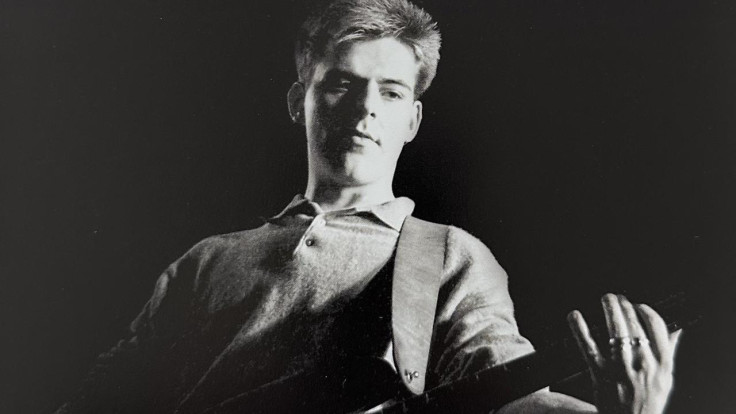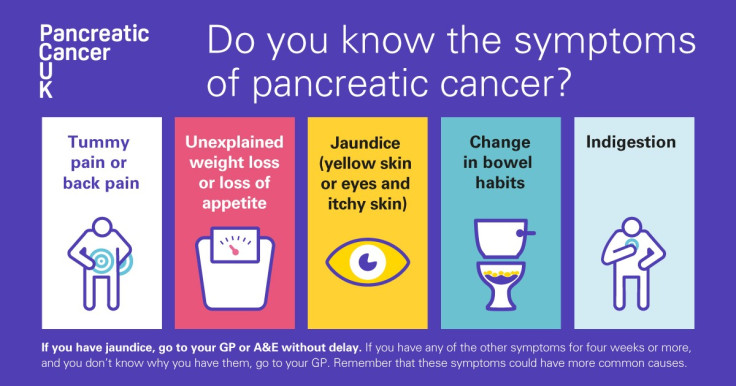The subtle warning signs of pancreatic cancer, the 'silent killer'
With the recent passing of legendary bassist, Andy Rourke, we take a look at the underlying symptoms of pancreatic cancer, aptly dubbed "the silent killer".

According to Cancer Research UK, there are over 10,500 new cases of pancreatic cancer in Britain every year, which averages approximately 29 per day. Statistically, this makes pancreatic cancer the 10th most common cancer in the country.
Andy Rourke, the renowned British bassist and former bandmate of the beloved indie band "The Smiths", is the latest celebrity to have tragically fallen victim to pancreatic cancer. Rourke was recognised for his distinctively melodic approach to bass playing and had performed with many artists such as Smiths' frontman, Morrissey, Sinead O'Connor, Ian Brown, New Order, Badly Drawn Boy, the Pretenders, the Cranberries, and ex-members of Mancunian bands Oasis and the Stone Roses.
Rourke is, shockingly, one of many celebrities who were diagnosed with, and later died, from this cruel disease, which includes Patrick Swayze, Alan Rickman, Roger Lloyd-Pack, Joan Crawford, Steve Jobs, Aretha Franklin and Sir John Hurt.
It is with deep sadness that we announce the passing of Andy Rourke after a lengthy illness with pancreatic cancer.
— Johnny Marr (@Johnny_Marr) May 19, 2023
Andy will be remembered as a kind and beautiful soul by those who knew him and as a supremely gifted musician by music fans.
We request privacy at this sad time pic.twitter.com/KNehQxXoFz
Pancreatic cancer is known for being notoriously difficult to spot due to its subtle, underlying symptoms, and is commonly caught during its later, deadly stages. Despite the advancement of pioneering medical practices for treating many forms of cancer, the treatment of pancreatic cancer remains challenging and has been since the 1970s.
According to the Mayo Clinic, pancreatic cancer is seldom noticed in its early stages, primarily because it doesn't exude symptoms until the disease has spread to other vital organs. Depending on the severity and extent of the cancer, treatment can include surgery on the pancreas, chemotherapy, radiation therapy or a combination of all of these.
So what exactly are the signs of pancreatic cancer? And is it possible for it to be treated in the early stages?

Medical experts state that one of the earliest and most common signs of pancreatic cancer is jaundice, which is a distinguishable yellowing hue of the eyes and skin. This is caused by a yellowish-brown substance called bilirubin, which is made inside the liver and is released through the bile ducts to aid with digestion. Once the bile ducts are blocked, the bilirubin builds up, thus turning the skin and eyes yellow.
A potential symptom is experiencing dull stomach pains, which could be a tumour growing around the pancreas and pressing into your nerves and other organs. At first, this pain may come and go, but the frequency will increase as the disease persists. Incidentally, you may also suffer with persistent lower back and abdominal pains.
Another common occurrence can be sudden, unexplained weight loss and a lack of appetite in general. This is caused by disruptions within the pancreas, which is a key component in the digestion of food. Unusual bowel movements, specifically constipation, diarrhoea or pale, floating excreta, can also be a sign of pancreatic cancer. This is caused when cancer interrupts digestion and limits the number of pancreatic enzymes present in the intestines, leading to undigested food travelling through the digestive tract.
The suspected causes of pancreatic cancer include smoking and chewing tobacco, obesity, diabetes and if your family has a history of pancreatic cancer. However, it is stated that anyone can be affected by pancreatic cancer, regardless of their health.
The NHS website and medical specialists highly encourage anyone who is experiencing painful and abnormal symptoms, even the most mild of signs, to see their GP at the earliest possible convenience.
© Copyright IBTimes 2025. All rights reserved.






















